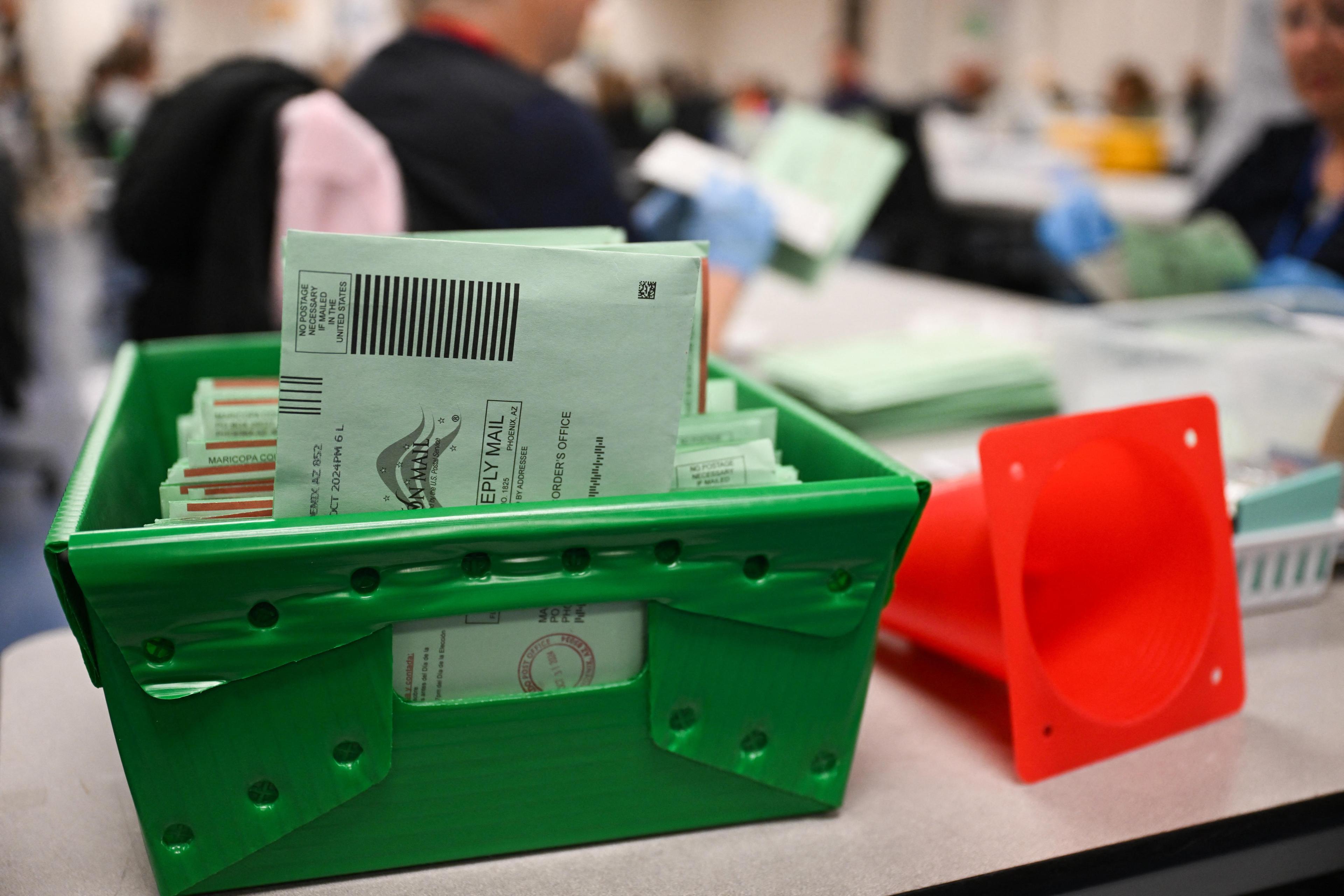The election results show that the status quo is not a compelling message for voters, leaders of the Uncommitted Movement said in remarks to media this morning.
The Uncommitted Movement is an organization led by Arab and Muslim American Democrats opposed to U.S. support for Israel’s war in Gaza and Lebanon. The group is based in Michigan, where the city of Dearborn is home to one of the largest Arab American communities in the country.
Organizers Lexis Zeidan and Abbas Alawieh spoke to reporters in Michigan about what they think of the election results and how their work will change during Trump’s term.
“I think our community is about to be subjected to a lot more surveillance and violence and our community won't be alone in that,” Alawieh said.
He referenced a plan known as Project Esther. The Forward, a Jewish American publication, said the plan proposes the federal government train its powers on “virulently anti-Israel, anti-Zionist, and anti-American groups” that it calls the “Hamas Support Network,” or HSN. The proposal suggests using counterterrorism and immigration laws against leaders of groups like Jewish Voice for Peace and Students for Justice in Palestine, the Forward wrote last month.
Groups like Uncommitted will stand in opposition to Trump’s agenda for the next four years, Alawieh said, “but it's going to take all of us, and it's going to take the Democratic Party adopting a different approach that mobilizes people and really helps them believe that a different policy to the future is possible.”
The Democratic Party is not safe from the group’s criticism despite the party’s failures at the polls, they said.
“One of the things that I'm intent on doing is laying bare for our communities across the country, and including our community here in the Arab Muslim community, that I believe actually it's Democrats' fault for abandoning our party,” Alawieh said.
“Donald Trump's playing us. Democrats are allowing him to play us. We've got to resist his political project of exploiting our pain, so that he can further marginalize us and other communities,” he said.
Copyright © 2024 NPR


